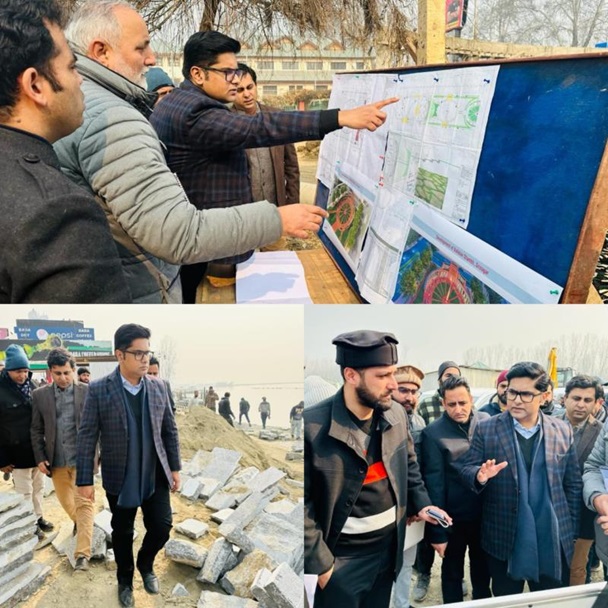
SRINAGAR, JANUARY 24: The Commissioner SMC/CEO Smart City, Dr. Owais Ahmad accompanied by officials from SMC, Smart City, and related departments, today led an extensive tour of various areas of Srinagar City to evaluate the advancement of ongoing Smart City Projects.
The delegation visited key locations, including Pratap Park, where the construction of Balidan Stambh and Development of Park is underway, Surface Nun Kun Parking Boulevard, Sunset Park Boulevard, Nishat Sathu-Walking/Cycle Track, Northern Foreshore Road, and Shalimar Canal.
During the visit, the CEO assessed the progress at these sites and provided immediate directives to expedite the work and ensure timely completion.
Furthermore, a stern warning was issued to the agencies whose work was found to be lagging behind schedule.
CEO emphasized the importance of adhering to project timelines and urged all involved parties to redouble their efforts to meet the established deadlines. The CEO underscored the significance of timely completion of the projects for the overall development and enhancement of Srinagar City.
The CEO Smart City expressed confidence in the collective commitment of the agencies and departments involved in the Smart City Projects and reiterated the imperative of maintaining high standards of execution and timely delivery.
He affirmed the dedication of the administration to closely monitor the progress of the projects and ensure that they align with the set milestones.
Dr. Owais Ahmad emphasized the transformational impact that the Smart City Projects will have on Srinagar, elevating its infrastructure, livability, and overall urban experience.
The administration remains resolute in its pursuit of realizing the vision of a modern, sustainable, and vibrant Srinagar City through the successful execution of the Smart City Projects.
|